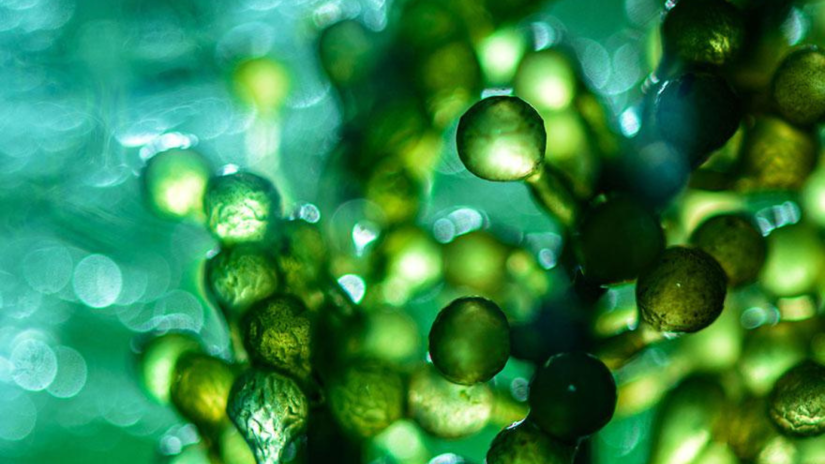UTS has developed an exciting potential alternative to single-use plastic... now we look at the final steps towards ensuring its market-readiness and sustainability.

The science of developing ‘bioplastics’ from non-fossil fuel sources is gaining momentum, and consumers are increasingly seeking out more environmentally friendly alternatives to single-use plastics.
Researchers at the UTS Climate Change Cluster (C3) have successfully developed biodegradable plastic prototypes from algae. C3 has partnered with the UTS Institute for Sustainable Futures (ISF) to better understand algal bioplastic’s viability as a truly sustainable alternative to single-use plastics and to know what steps are still required to make algal bioplastic products market-ready.
“We are at a tipping point with algal bioplastics where market demand continues to increase, but production cost remains too high – very soon the economics will make sense for widescale algal production to support the demand for bioplastics” says Professor Peter Ralph, Director of C3.
Breaking down bioplastics’ challenges
Before looking specifically at algal bioplastic, the research team sought to understand the current policy and infrastructure conditions affecting bioplastics in general. They found that state government bans on single-use plastic items (such as plastic bags) increasingly include bioplastics along with conventional plastics. Because different bioplastics have varying rates of recyclability and biodegradability their end-of-life management can be complex. This has resulted in them being considered just as environmentally damaging as conventional plastics by policy makers.
Sustainable disposal of bioplastics depends on the waste infrastructure available to recycle and compost different types of plastic – the diversity of which is now very high. There are already limitations on Australia’s capacity to manage conventional plastic recycling – as evidenced by 2022’s well-publicised REDcycle case in which the recycling program was found to be storing a backlog of soft plastics – let alone bioplastics.
Consumers are largely unaware of correct disposal methods for bioplastic products. Inconsistent product labelling, thanks to a lack of standardisation, is often confusing and can mislead consumers.
Understanding algae’s impact and potential
After investigating the current policy and infrastructure context for bioplastic products in the market, the research team studied the sustainability of algal bioplastic from a life-cycle perspective.
During harvesting and production, there are a number of potential sustainability issues to consider, such as competition with food production. Land-based production of algae may compete with agriculture and nearshore ocean seaweed farming may compete with fisheries. Also, during production, any extraction processes involved can be resource and energy intensive.
Aside from the production impacts, some of the key life cycle considerations relate to enabling a safe end of life disposal pathway. Maintaining a systems view, and aligning with or adapting existing infrastructure and ensuring consumer education is critical to this.
Moving forward sustainably
This research is the basis of the Market and sustainability potential for algal bioplastics in Australia report, which also includes recommended actions for algal bioplastic producers and other stakeholders.
“While algae is an exciting solution as a bioplastic feedstock, we need to keep perspective of the life cycle impacts and steps to mitigate these impacts in order to make algal bioplastics both sustainable and market-ready” says Fiona Berry, Senior Research Consultant at ISF.
The report concludes that while algal bioplastic is an exciting prospect for the future, there is work to be done in considering the range of sustainability hotspots in its life cycle, keeping abreast of government policy in relation to single-use plastic bans and designing products with waste system constraints and optimal end of life outcomes in mind.

